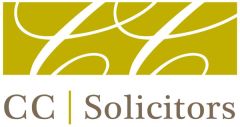News/Gender Pay Gap Reporting is Coming to Ireland
As the law currently stands there is no obligation on employers to report on the gender pay gap within their organisation. According to the Central Statistics Office, Ireland’s gender pay gap is currently 13.9%. In 2017, the average gender pay gap in the EU was 16%.
While a gender pay gap in favour of men may not necessarily reflect unlawful pay discrimination, it may serve to highlight the following:
- Lack of progression to senior positions for women in an organisation
- Gender segregation in the work-force with a significant majority of men in the higher paid roles.
Obliging employers to measure the gap and be transparent about it opens up the conversation about why a gender pay gap exists and what might be done about it. “What gets measured gets managed.”
In the UK the gender pay gap for 2018 was 17.9%. Reporting for employers with 250+ employees came into force in April 2017. The UK Regulations were widely condemned at the time they were introduced for not being comprehensive enough and lacking teeth. Critics pointed to the fact the regulations did not require large firms to include partner earnings in their reports, that the pay gap was not broken down in more detail by job classification/seniority and that there was no obligation to state what the employer was doing to address their pay gap.
As it turned out, there was a huge degree of media and public interest in the reports when they first came out in 2018 with many household names reporting significant gaps. Ryanair hit the headlines when it revealed a gender pay gap of 72%, with women making up only 3% of top earners. Easyjet reported a 45% gap. Apple’s report showed that 71% of its top-earning employees were men and the median pay gap at Apple UK was 24%. JP Morgan had a median pay gap of 54%. 78% of those in their highest-paid roles were men. Beyond the focus on individual companies, the bigger picture painted was arguably more significant: that 78% of organisations had pay gaps in favour of men and for 13% of them, that gap was over 30%.
In Ireland the Gender Pay Gap Information Bill was published in April 2019 and is expected to come into force before the end of 2019. The Bill allows the Minister for Justice and Equality to make regulations which require public and private sector employers to report and publish information on their gender pay gap. The regulations will apply initially to employers with 250+ employees, thereafter reducing to 150+ and ultimately to 50+. The majority of businesses in Ireland will not be affected by the regulations as they have fewer than 50 employees. However, it is estimated by the Department of Justice and Equality that 47% of all employees will be covered by the regulations when they first come into force, rising to 65% when the threshold reduces to 50 +.
The gender pay gap is the difference between men’s and women’s pay based on the average difference in gross hourly earnings of all employees across an organisation, not just those doing the same job. A gender pay gap will typically indicate that men and women are not equally represented at the different levels of an organisation. Employers will be required to publish the reasons for any differences and the measures (if any) taken or proposed to be taken by the employer to reduce or eliminate the differences. Until the precise scope of the regulations is clear, it will be difficult for employers to prepare for the new requirements from a technical and systems perspective as employers will need to spend time organising their HR and pay-roll systems so that the relevant data may be extracted easily. Ultimately, policies and practices may need to be reviewed and revised in light of the findings of any report. There are a number of comprehensive enforcement mechanisms in the Irish Bill including designated officers to investigate how employers prepare the information to ensure its accuracy as well as the powers to enter premises, obtain information, and require employers to provide information and associated sanctions to apply. The Irish Human Rights and Equality Commission may apply to the Circuit Court for an order requiring compliance. Employees may refer a complaint that their employer has failed to comply with the regulations to the Director General of the Workplace Relations Commission. If the complaint is upheld following an investigation, the Director General may order the employer to take a specified course of action to comply with its reporting obligations.
Ultimately, the regulations in the UK shone a light on the issue of equal pay and gender inequality in the workplace more generally and employers felt a moral and reputational obligation to explain their figures and what they were doing to address a gap. Employees were empowered to ask questions about their own pay and how it compared to colleagues. There is no reason to think the same dynamics will not apply here in Ireland once this legislation is passed later this year.
CC Solicitors is a specialist premium employment and partnership law practice. If you want more information about Gender Pay Gap reporting, equal pay or other employment law advice, please contact us.
Author: Claire Dawson, Partner at CC Solicitors
